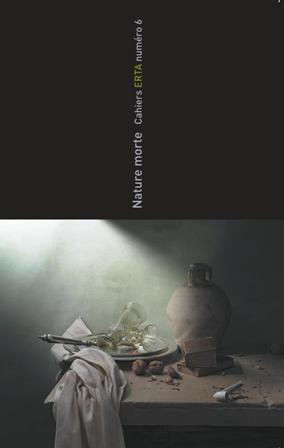Le Roi vierge – ou quelques insignifiantes remarques sur le duel d’un poète… et d’un monarque
Mots-clés :
Catulle Mendès, French Wagnerism, novel with a keyRésumé
Catulle Mendès was a nineteenth century French poet, novelist, librettist, literary and music critic, very famous at his times but unjustly depreciated by the next generations. The paper reminds the sphere of his activity that should never be forgotten: Mendès appears first of all as one of the main figures of the early French Wagnerism. Born in Bordeaux on the 22nd May 1841 (twenty eight years to the day after the German Master!), he got to know Richard Wagner in Paris in 1860 where the composer was giving his three famous concerts at the Italian Theatre (Théâtre-Italien) and obtained, thanks to Princess Pauline Metternich, the chance to perform his opera Tannhäuser at the Paris Opera. Twentyyear- old Mendès invited Richard Wagner to cooperate with the periodical that he had just founded, La Revue fantaisiste. However Wagner hasn’t published any text in La Revue fantaisiste. Disgusted by his Tannhäuser’s failure in Paris, he left the French capital soon. Catulle Mendès missed the good occasion to create the first French « revue wagnérienne ». Firstly, his journal’s reaction to the scandal at the Paris Opera was very terse. Secondly, Auguste de Gasperini’s study of Wagner’s operas, announced by Mendès, was going to be published not in La Revue fantaisiste, but in Le Ménestrel, the most antiwagnerian French journal of these times. Thirdly, the number of texts on music in general and on Wagner in particular published by the journal founded by Catulle Mendès was extremely small and didn’t reflect in any way his musical or Wagnerian fascinations. A few years later, in summer 1869, Catulle Mendès with his wife Judith Mendès, née Gautier, and their friend Auguste Villiers de l’Isle-Adam paid a visit to Richard Wagner in Tribschen. It was a crucial moment for the development of their wagnerism. In September 1869 they observed in Munich the conflict between the composer and his patron, the king Ludwig II of Bavaria who wanted the first part of Wagner’s Tetralogy The Ring of the Nibelung, The Rhine Gold, to be performed then in Munich, despite the opposition of the author who preferred to keep all the parts of his monumental cycle for the new opera house that he was intending to construct as soon as possible somewhere in Bavaria. In 1879 Catulle Mendès wrote un roman à clef, a novel with a key, entitled Le Roi vierge – The Virgin king portraying the king Ludwig II of Bavaria and his complex relationship with Richard Wagner. This novel’s distribution in Bavaria was formally prohibited by the King who hadn’t appreciated its literary quality and his own portrait « painted » by the French writer. Responding to the King’s resolution, Catulle Mendès in 1886, a few months before Ludwig’s mysterious death, published another text à clef on Ludwig II of Bavaria and Richard Wagner. The short text entitled L’Épître au roi de Thuringe (The Epistle to the king of Thuringia) reflects their conflict of 1869 and enhances the role of a group of French Wagner’s admirers supporting the German composer in his struggle against his patron’s despotism. These two texts, Le Roi vierge and L’Épître au roi de Thuringe, are thoroughly analyzed by the author of the paper as literary expressions of Catulle Mendès’s Wagnerism.
Téléchargements
Références
Mendès C., Le Roi vierge, Paris, E. Dentu, Éditeur, 1881, éd. de réf. Bibliothèque-Charpentier, Paris, Eugène Fasquelle, 1900.
Mendès C., « L’Épître au roi de Thuringe », Gil Blas, no 2254, 19 janvier 1886, p. 1 (éd. de référence : C. Mendès, Richard Wagner, Paris, G. Charpentier et Cie, éditeurs, 1886, p. 21-38).
Bainville J., Louis II de Bavière, Paris, Flammarion, 1932.
Besnier P., Lucet S., Prince N. (dir.) « Catulle Mendès – L’énigme d’une disparition », La Licorne, 2005, no 74.
Bancquart M.-C., (dir.), Écrivains fin-de-siècle, Paris, Gallimard, 2010.
Coeuroy A., Wagner et l’esprit romantique, Paris, Gallimard, 1965.
Gautier J., Le Collier des jours, vol. III : Le troisième rang du collier, Paris, Librairie Félix Juven, 1909.
Guichard L., La musique et les lettres en France au temps du wagnérisme, Paris, Presses Universitaires de France, 1963.
Marchand J., La légende de Flore et Blanchefleur, poème du XIIe siècle renouvelé par…, Paris, H. Piazza, 1930.
Mendès C., Richard Wagner, Paris, G. Charpentier et Cie, 1886.
Méril É. du, Floire et Blanceflor, poèmes du XIIIe siècle, publiés d’après les manuscrits avec une introduction, des notes et un glossaire, Paris, Jannet Libraire, 1856.
Mortelette Y., « Cladel et le Parnasse », [dans :] Léon Cladel, Glaudes P. et Huet-Brichard M.-C. (dir.), Toulouse, Presses Universitaires du Mirail, 2003.
Mrozowicki M. P., Richard Wagner et sa réception en France, Première partie : Le Musicien de l’avenir 1813-1883, Gdańsk, Presses Universitaires de Gdańsk, 2013.
Saïdah J.-P. (dir.), Catulle Mendès et la République des lettres, Paris, Garnier 2011.
Schroeder J., Guide à Oberammergau − Oberammergau et la Représentation de la Passion avec de nombreuses illustrations et les portraits des principaux acteurs (édition française publiée d’après les documents officiels par l’abbé J. Cardon, du Clergé d’Autun), Paris, P. Lethielleux, Libraire-Éditeur, 1900 (édition de référence 1910).
Wagner R., Quatre poèmes d’opéras traduits en prose française précédés d’Une lettre sur la musique. Le Vaisseau fantôme, Tannhaeuser, Lohengrin, Tristan et Iseult, Paris, Librairie Nouvelle, A. Bourdilliat et Cie, 1961.
(http://licorne.edel.univ-poitiers.fr/sommaire.php?id=3262, consulté le 19 octobre 2014).
http://www.fabula.org/actualites/catulle-mendes-et-la-republique-deslettres_21928.php, consulté le 19 octobre 2014
http://www.bmlisieux.com/curiosa/laujol01.htm, consulté le 15 octobre 2014).
(http://bellevue-des-livres.over-blog.com/-lohengrin-richard-wagner.-fiche-%C3%A9l%C3%A8ve-1, consulté le 15 mai 2014).
http://www.louis2debaviere.com/fr/vie/CH_08_mort, consulté le 3 juin 2014

 Revues scientifiques académiques
Revues scientifiques académiques





